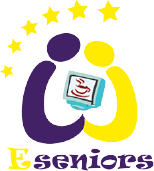- Home
- About
ABOUT THE PROJECT





-
TRACEUS seeks to develop and curate a database of recipes, cuisines and traditions (storytelling/singing/dancing) associated with European cuisines using mobile technology as a learning tool.
The project objectives are to:
•Improve and expand (digital) learning opportunities for older adults with Internet skills by enriching the learning offers with new contents and topics.
•Enable older people to create their own multimedia enriched learning offers.
•To guarantee a high quality of learning materials, older people and migrants will be trained in an online course.
•Facilitate access to learning opportunities through internet-based offerings.
•Promote interregional and European networking and cooperation. -
TRACEUS is an Erasmus+ KA2 that will operate as a living laboratory of social and technological activities promoting knowledge on new technology skills through culinary traditions and adult-learning processes. The project will develop an array of activities and resources to empower older adults and migrants to use new technologies to become authors and moviemakers and share their experiences with their peers and society.
To that end, the project’s implementing team will produce and make available new and innovative curricula, open educational resources in the form of small online videos created by older people and migrants, and innovative educational methods and training courses for older people and migrants. It will support social integration through said tools, involving adult citizens, migrants, and refugees as protagonists sharing and promoting their identity and culture. Ultimately, it will pave the way towards greater participation by older people and migrants for mutual learning and promote knowledge and appreciation of tradition and achieve a fruitful relationship across the generations and communities.
-
The project will illustrate and provide an accessible model which builds on harnessing inclusive technology learning for citizens at risk of being “e- excluded” in the traditional sense and ensure that their culinary customs and traditions (storytelling, music, dancing) are recorded and curated in an accessible way. It will thus use mobile technology as a learning tool as well as a resource for lifelong learning that can also facilitate intergenerational communication.
-
IO1: Authoring training/Training Manual:
An online training course, consisting of both online and face-to-face elements, (curriculum) for older adults and migrants, who would like to become authors of digital learning materials, and record/video their recipes and traditions/cultural stories relating to their cuisine.IO2: Online Platform:
A host environment for the tools and resources of the project that will feature information, tools and resources to support the online learning of the project’s target groups.IO3: Testing/Implementation:
A specific wellbeing survey (based on the Warwick-Edinburgh Mental Well-Being Scale (WEMWBS)) with the participants prior to and after the project to assess the impact on their wellbeing and collect data which could potentially lead to further research on the psychological impact of engaging in this type of activities. -
-
DUBLIN CITY UNIVERSITY
Dublin City University is one of the world’s leading young universities, with a mission to transform lives and societies. Through education, research and innovation, with a focus on delivering real impact and addressing global challenges in collaboration with our partners and stakeholders, DCU leads several pioneering initiatives, including the Age-Friendly University Initiative launched in 2012, which has grown into a global network of over 100 universities representing Europe, North and South American, South East Asia and Australia. The mission of the AFU Global Network is to promote age inclusivity in higher education through intergenerational and lifelong learning, challenge ageism and ageism stereotypes, contribute towards the Silver Economy and change the narrative on ageing.
-
E-seniors: Initiation des Seniors Aux Ntic Association
E-Seniors is a non-profit non-governmental organization, founded in 2005 by Monique Epstein, the general manager of the association. E-Seniors aims at fighting e-exclusion by offering ICT training to seniors (people aged 55 and over). Since its creation, E-Seniors provides ICT courses for seniors in various public places and constantly opens new courses all over the Parisian region, in order to provide proximity services taking into account the rhythm, the interests and the needs of its audience. Through its actions for and with elderly people, E-Seniors also raises awareness about the importance of ICT solutions in everyday life. The association also proposes interactive gaming activities in elderly residences, retirement homes and day-care centres. E-Seniors is aware of the challenges that both healthy and dependent seniors face up to and is involved in the development of new products and services aiming to boost independent living and to maintain physical and mental health. E-Seniors has a large experience in the management of projects related to ICT tools and healthy ageing financed by European programs, such as Horizon 2020 and Erasmus+. ESE is an associated partner of the French node of the EIT Health KIC (Knowledge and Innovation Community), a European consortium operating in the framework of the European Institute of Innovation and Technology (EIT).
-
UNIVERSIDAD DE CASTILLA – LA MANCHA
The University of Castilla-La Mancha is the flagship higher education institution for the Castilla-La Mancha community. It iis a modern and competitive institution, with almost 30,000 students. It offers master’s degrees, doctoral degrees and our own degrees, as well as many other initiatives ranging from a powerful language training programme to our cultural programme, in which the University for Mature Students stands out.
-
MEDITER – RESEAU EURO-MEDITERRANEEN POUR LA COOPERATION A.I.S.B.I
Euro-Mediterranean Network for Cooperation-MEDITER is a NGO network of actors that promote the sharing and transfer of knowledge, strategic skills and good innovative practices in the Euro-Mediterranean space.
We strongly believe in cooperation as a strategic factor for development and peace. We have extensive experience in designing and supporting programs that address contemporary social needs, at the European level and between the two shores of the Mediterranean. MEDITER has developed measures to prevent and tackle financial, cultural and socio-economic exclusion of vulnerable groups (lone parents, displaced persons, war widows, refugees, migrants). Special attention is paid on gender dynamics. We are based in Brussels and have office in Beirut
-
FONDACIJA LALE
Tulip Foundation is a Bulgarian NGO that runs various programmes for grants, trainings, networking and campaigns like European Day of Solidarity between Generations, Society of All Ages, Days of the Good Deeds etc. It works systematically for the social inclusion of all people, encouraging volunteering and community engagement.
-
Center for the Advancement of Research & Development in Educational Technology
CARDET is one of the leading research and training centers in the eastern Mediterranean region with global expertise in project design and implementation, project management, training and e-learning. CARDET has completed numerous projects relating to the development of adult and vocational training initiatives in the areas of social work, innovation and entrepreneurship. Members of its team and board represent European and International Higher education institutions, training centers and international organizations, and have in-depth knowledge of the adult training sector and financial literacy area while CARDET focuses in the promotion of social justice and social progress. CARDET brings together an international team of experts with decades of global expertise in adult training, capacity building, curriculum development, social entrepreneurship, vocational training, design thinking, innovation, education research, evaluation, and human resource development.
-
TRACEUS seeks to develop and curate a database of recipes, cuisines and traditions (storytelling/singing/dancing) associated with European cuisines using mobile technology as a learning tool.
The project objectives are to:
•Improve and expand (digital) learning opportunities for older adults with Internet skills by enriching the learning offers with new contents and topics.
•Enable older people to create their own multimedia enriched learning offers.
•To guarantee a high quality of learning materials, older people and migrants will be trained in an online course.
•Facilitate access to learning opportunities through internet-based offerings.
•Promote interregional and European networking and cooperation.
TRACEUS is an Erasmus+ KA2 that will operate as a living laboratory of social and technological activities promoting knowledge on new technology skills through culinary traditions and adult-learning processes. The project will develop an array of activities and resources to empower older adults and migrants to use new technologies to become authors and moviemakers and share their experiences with their peers and society.
To that end, the project’s implementing team will produce and make available new and innovative curricula, open educational resources in the form of small online videos created by older people and migrants, and innovative educational methods and training courses for older people and migrants. It will support social integration through said tools, involving adult citizens, migrants, and refugees as protagonists sharing and promoting their identity and culture. Ultimately, it will pave the way towards greater participation by older people and migrants for mutual learning and promote knowledge and appreciation of tradition and achieve a fruitful relationship across the generations and communities.
IO1: Authoring training/Training Manual:
An online training course, consisting of both online and face-to-face elements, (curriculum) for older adults and migrants, who would like to become authors of digital learning materials, and record/video their recipes and traditions/cultural stories relating to their cuisine.
IO2: Online Platform:
A host environment for the tools and resources of the project that will feature information, tools and resources to support the online learning of the project’s target groups.
IO3: Testing/Implementation:
A specific wellbeing survey (based on the Warwick-Edinburgh Mental Well-Being Scale (WEMWBS)) with the participants prior to and after the project to assess the impact on their wellbeing and collect data which could potentially lead to further research on the psychological impact of engaging in this type of activities.
-
DUBLIN CITY UNIVERSITY
Dublin City University is one of the world’s leading young universities, with a mission to transform lives and societies. Through education, research and innovation, with a focus on delivering real impact and addressing global challenges in collaboration with our partners and stakeholders, DCU leads several pioneering initiatives, including the Age-Friendly University Initiative launched in 2012, which has grown into a global network of over 100 universities representing Europe, North and South American, South East Asia and Australia. The mission of the AFU Global Network is to promote age inclusivity in higher education through intergenerational and lifelong learning, challenge ageism and ageism stereotypes, contribute towards the Silver Economy and change the narrative on ageing.
-
E-seniors: Initiation des Seniors Aux Ntic Association
E-Seniors is a non-profit non-governmental organization, founded in 2005 by Monique Epstein, the general manager of the association. E-Seniors aims at fighting e-exclusion by offering ICT training to seniors (people aged 55 and over). Since its creation, E-Seniors provides ICT courses for seniors in various public places and constantly opens new courses all over the Parisian region, in order to provide proximity services taking into account the rhythm, the interests and the needs of its audience. Through its actions for and with elderly people, E-Seniors also raises awareness about the importance of ICT solutions in everyday life. The association also proposes interactive gaming activities in elderly residences, retirement homes and day-care centres. E-Seniors is aware of the challenges that both healthy and dependent seniors face up to and is involved in the development of new products and services aiming to boost independent living and to maintain physical and mental health. E-Seniors has a large experience in the management of projects related to ICT tools and healthy ageing financed by European programs, such as Horizon 2020 and Erasmus+. ESE is an associated partner of the French node of the EIT Health KIC (Knowledge and Innovation Community), a European consortium operating in the framework of the European Institute of Innovation and Technology (EIT).
-
UNIVERSIDAD DE CASTILLA – LA MANCHA
The University of Castilla-La Mancha is the flagship higher education institution for the Castilla-La Mancha community. It iis a modern and competitive institution, with almost 30,000 students. It offers master’s degrees, doctoral degrees and our own degrees, as well as many other initiatives ranging from a powerful language training programme to our cultural programme, in which the University for Mature Students stands out.
-
MEDITER – RESEAU EURO-MEDITERRANEEN POUR LA COOPERATION A.I.S.B.I
Euro-Mediterranean Network for Cooperation-MEDITER is a NGO network of actors that promote the sharing and transfer of knowledge, strategic skills and good innovative practices in the Euro-Mediterranean space.
We strongly believe in cooperation as a strategic factor for development and peace. We have extensive experience in designing and supporting programs that address contemporary social needs, at the European level and between the two shores of the Mediterranean. MEDITER has developed measures to prevent and tackle financial, cultural and socio-economic exclusion of vulnerable groups (lone parents, displaced persons, war widows, refugees, migrants). Special attention is paid on gender dynamics. We are based in Brussels and have office in Beirut
-
FONDACIJA LALE
Tulip Foundation is a Bulgarian NGO that runs various programmes for grants, trainings, networking and campaigns like European Day of Solidarity between Generations, Society of All Ages, Days of the Good Deeds etc. It works systematically for the social inclusion of all people, encouraging volunteering and community engagement.
-
Center for the Advancement of Research & Development in Educational Technology
CARDET is one of the leading research and training centers in the eastern Mediterranean region with global expertise in project design and implementation, project management, training and e-learning. CARDET has completed numerous projects relating to the development of adult and vocational training initiatives in the areas of social work, innovation and entrepreneurship. Members of its team and board represent European and International Higher education institutions, training centers and international organizations, and have in-depth knowledge of the adult training sector and financial literacy area while CARDET focuses in the promotion of social justice and social progress. CARDET brings together an international team of experts with decades of global expertise in adult training, capacity building, curriculum development, social entrepreneurship, vocational training, design thinking, innovation, education research, evaluation, and human resource development.

The European Commission's support for the production of this publication does not constitute an endorsement of the contents, which reflect the views only of the authors, and the Commission cannot be held responsible for any use which may be made of the information contained therein.
[Project Number: 2020-1-1E01-KA204-66037] Privacy Policy





